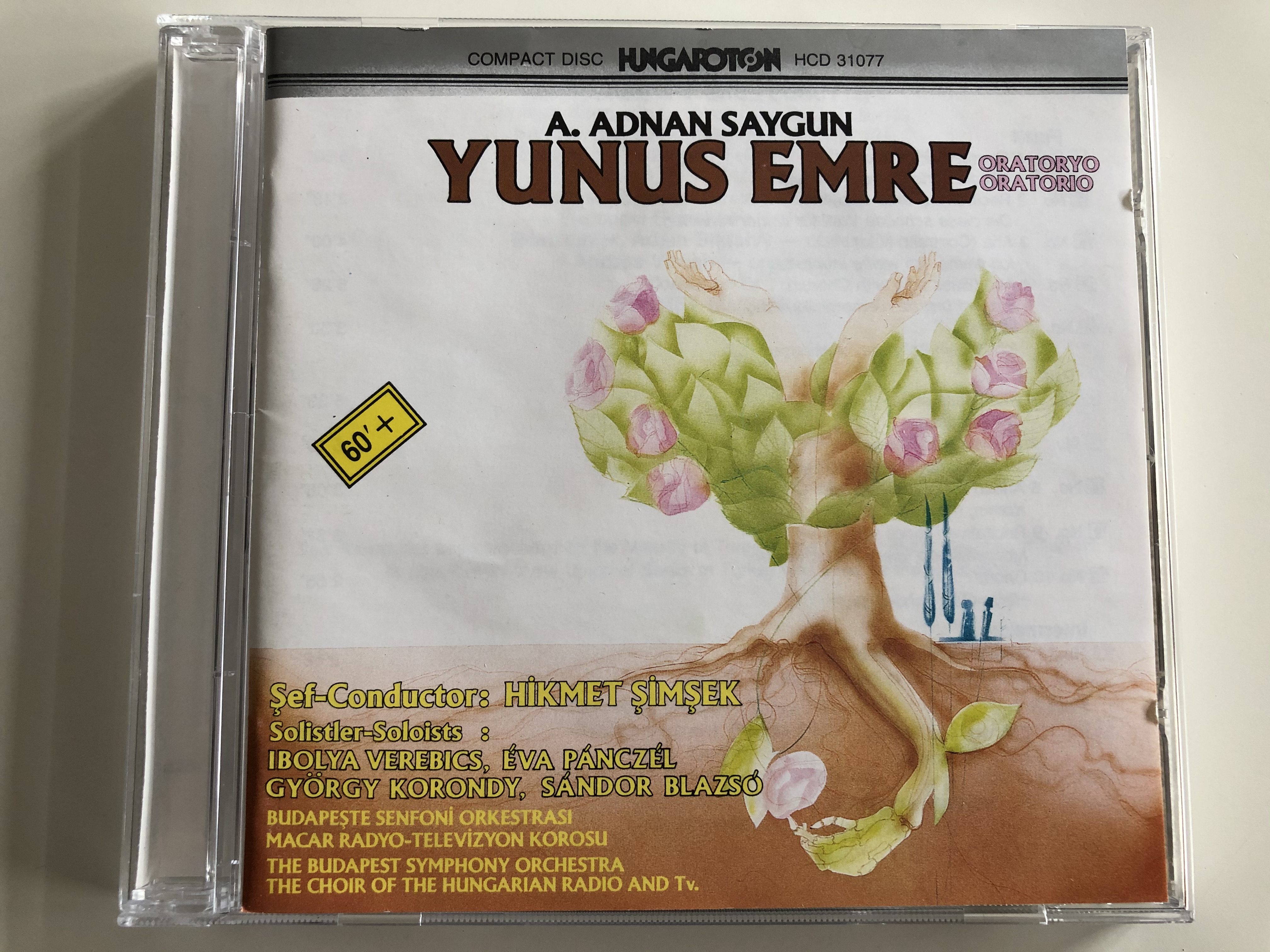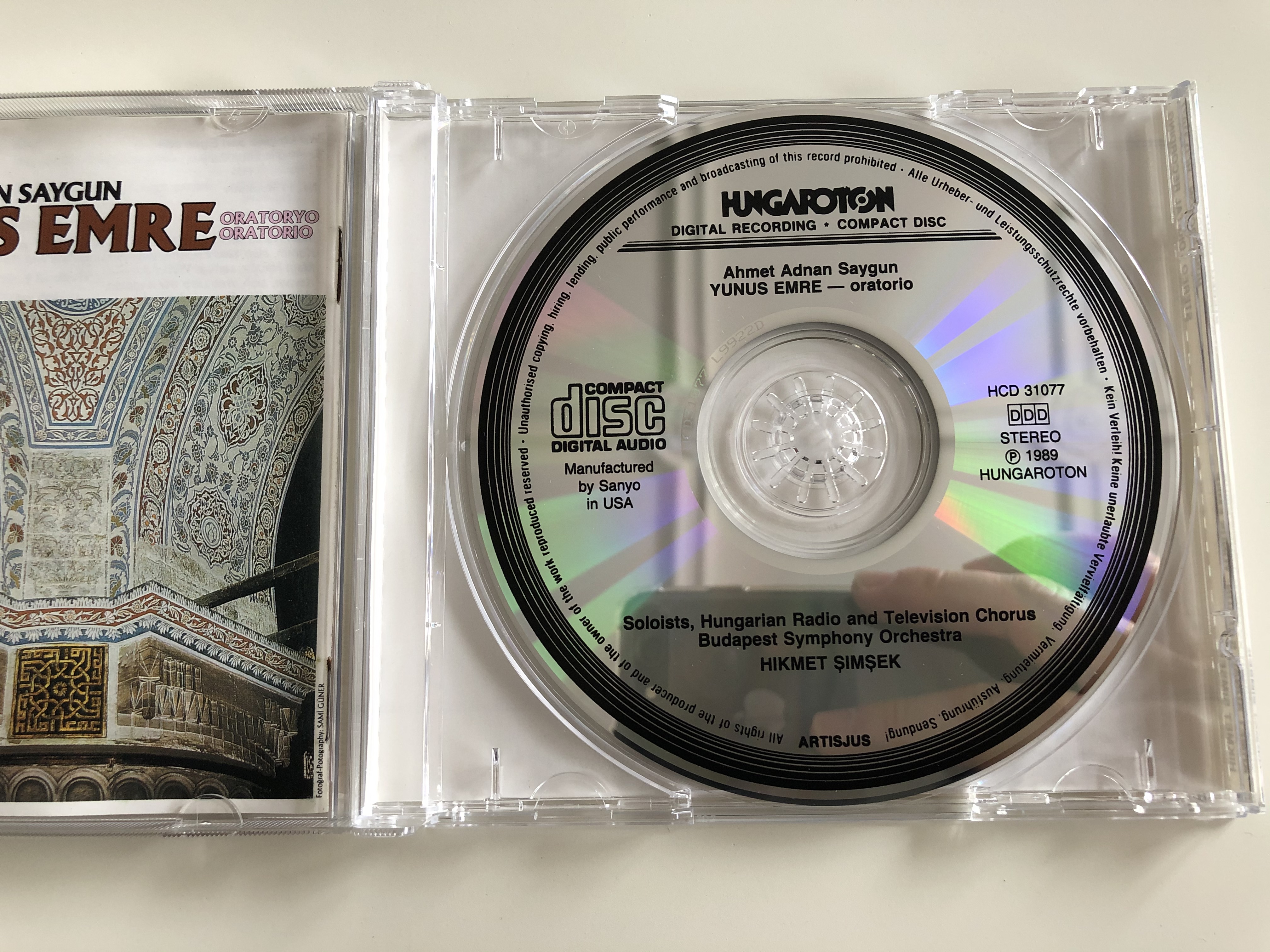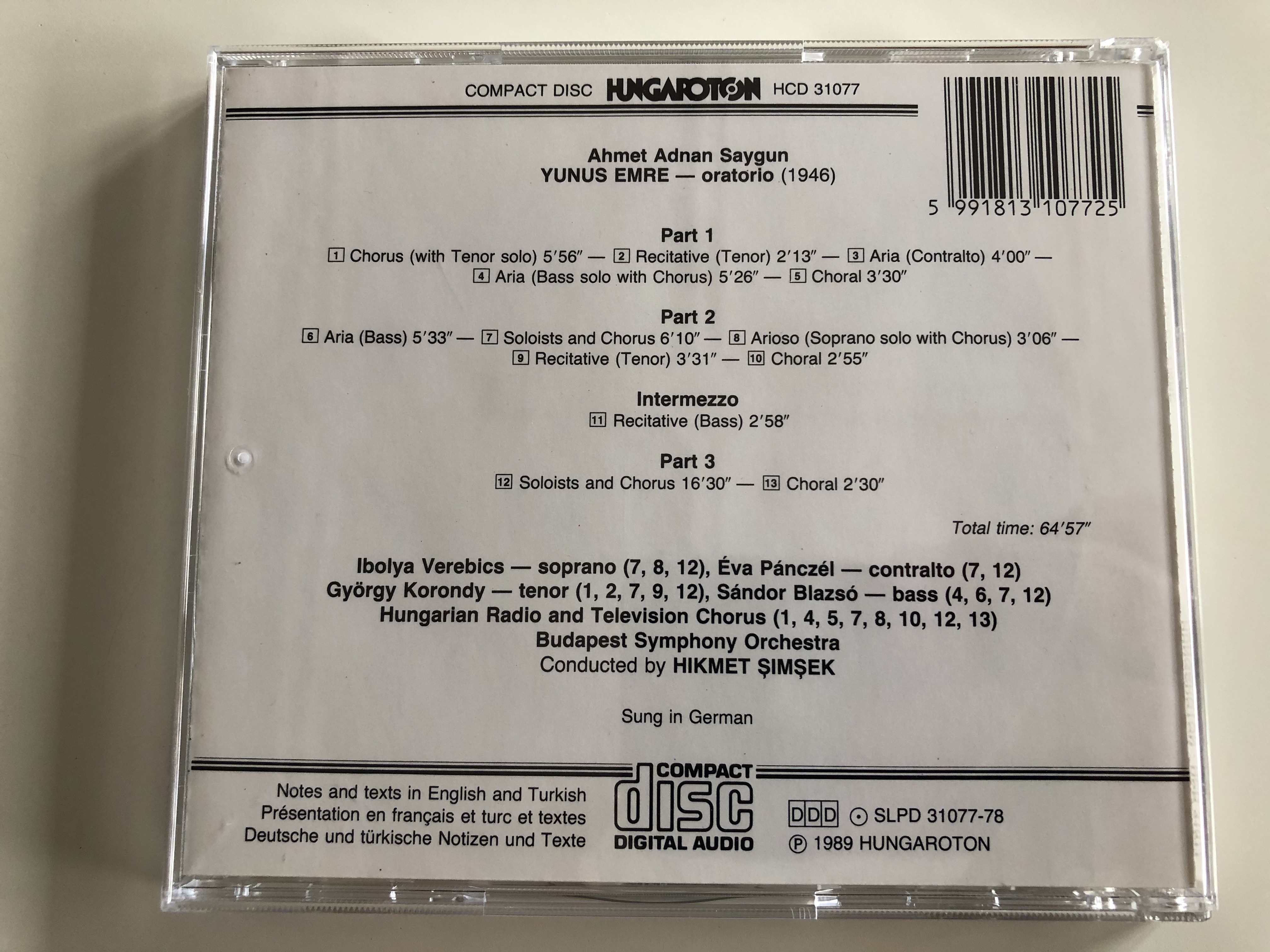Description
A. Adnan Saygun – Yunus Emre Oratorio 1946 / Conductor: Hikmet Şimşek / Soloists: Ibolya Verebics, Eva Panczel, Gyorgy Korondy, Sandor Blazso / The Budapest Symphony Orchestra, The Choir of the Hungarian Radio And Tv. / Hungaroton Audio CD 1989 Stereo / HCD31077
UPC 5991813107725
Total Playtime 64:57
Sung in German
Saygun, Ahmed Adnan (1907-1991): Yunus emre / Vezényel: Hikmet ŞimŞek
Tracklist:
| Part 1 | ||
| 1 | Chorus (With Tenor Solo) | 5:56 |
| 2 | Recitative (Tenor) | 2:13 |
| 3 | Aria (Contralto) | 4:00 |
| 4 | Aria (Bass Solo With Chorus) | 5:26 |
| 5 | Choral | 3:30 |
|
Part 2 |
||
| 6 | Aria (Bass) | 5:33 |
| 7 | Solosits And Chorus | 6:10 |
| 8 | Arioso (Soprano With Chorus) |
3:06 |
| 9 | Recitative (Tenor) | 3:31 |
| 10 | Choral | 2:55 |
|
Intermezzo |
||
| 11 | Recitative (Bass) | 2:58 |
|
Part 3 |
||
| 12 |
Soloists And Chorus | 16:30 |
| 13 | Choral | 2:30 |
- Bass Vocals – Sándor Blazsó (tracks: 4, 6, 7, 12)
- Chorus – Hungarian Radio And Television Chorus (tracks: 1, 4, 5, 7, 8, 10, 12, 13)
- Chorus Master – Ferenc Sapszon
- Conductor – Hikmet Şimşek
- Contralto Vocals – Éva Pánczél (tracks: 7, 12)
- Design – Erdem Gülegen
- Engineer [Balance Engineer] – Ferenc Pécsi
- Oboe – András Virágh, Kollár Béla
- Orchestra – Budapest Symphony Orchestra
- Photography By – Sami Güner
- Producer [Recording Producer] – Ibolya Tóth
- Soprano Vocals – Ibolya Verebics (tracks: 7, 8, 12)
- Tenor Vocals – György Korondy (tracks: 1, 2, 7, 9, 12)
Ahmet Adnan Saygun (Turkish pronunciation: [ahˈmed adˈnan sajˈɡun]; 7 September 1907 – 6 January 1991) was a Turkish composer, musicologist and writer on music.
One of a group of composers known as the Turkish Five who pioneered western classical music in Turkey, his works show a mastery of Western musical practice, while also incorporating traditional Turkish folk songs and culture. When alluding to folk elements he tends to spotlight one note of the scale and weave a melody around it, based on a Turkish mode. His extensive output includes five symphonies, five operas, two piano concertos, concertos for violin, viola and cello, and a wide range of chamber and choral works.
The Times called him "the grand old man of Turkish music, who was to his country what Jean Sibelius is to Finland, what Manuel de Falla is to Spain, and what Béla Bartók is to Hungary".[1] Saygun was growing up in Turkey he witnessed radical changes in his country’s politics and culture as the reforms of Mustafa Kemal Atatürk had replaced the Ottoman Empire—which had ruled for nearly 600 years—with a new secular republic based on Western models and traditions. As Atatürk had created a new cultural identity for his people and newly founded nation, Saygun found his role in developing what Atatürk had begun.
Yunus Emre Oratorio is an oratorio written by Ahmed Adnan Saygun in 1942. It was first staged in 1946 with the support of İsmet İnönü, the president of Turkey at the time. Since then it has been translated in many languages and performed in various countries, including Hungary, Austria, Germany, and the Vatican.
























































